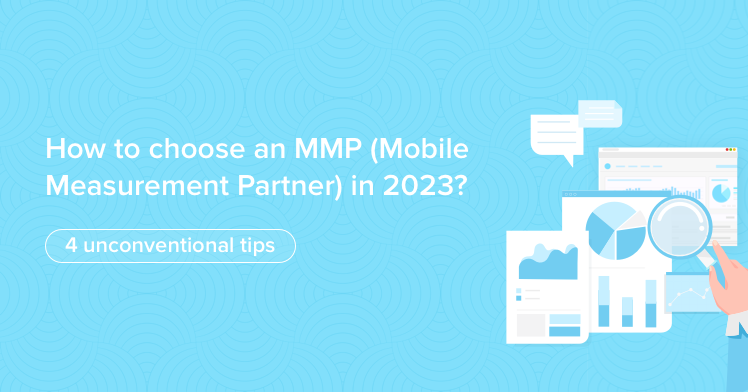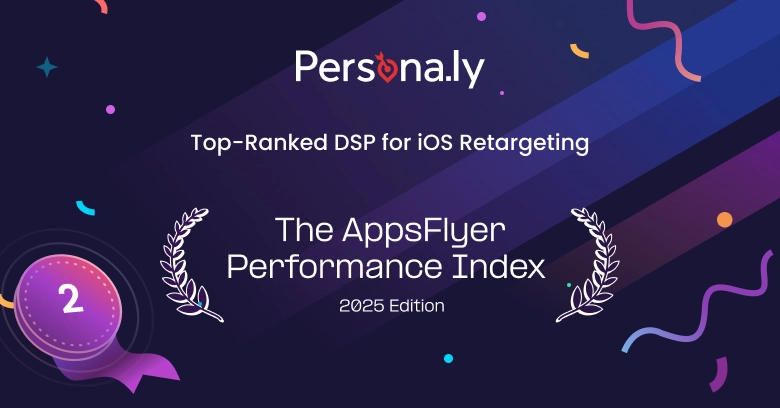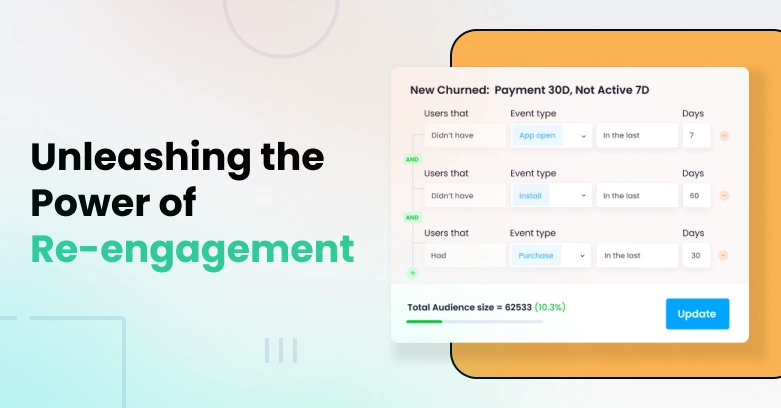
How to choose an MMP (Mobile Measurement Partner) in 2023? Here are 4 unconventional tips
This guest post has been written by Anurag Mohan, Customer Success Manager at Tenjin
Mobile marketers have started to realize that the importance of choosing the right Mobile Measurement Partner (MMP) is even more pertinent than it was a couple of years ago. With the ‘new normal’ of privacy centric attribution, MMPs have begun to adapt to building products that are not only compliant with the new privacy requirements but are also effectively helping advertisers to run performance-based advertising. The data is still there but advertisers just need to dig deeper to get it. MMPs are the ones that should be doing the heavy lifting of collecting and presenting scattered data here.
Here are some useful tips to help you choose the right MMP for your business:
Tip #1: Shock! – MMPs are More Than Just Attribution

Even though MMPs are often considered synonymous to ‘attribution’, they are so much more than that today. MMPs now provide advertisers with a range of new features. Some have become essential, while others remain unknown to the general public. Here are a few examples:
Cost & Ad Revenue Aggregation
Access to a dashboard that aggregates cost and revenue data in one place is crucial. LTV (Lifetime Value) and ROI (Return on Investment) are key metrics used by advertisers to evaluate their user-acquisition efforts. An MMP should provide cohort LTV data for both IAP (In-App Purchases) and Ad Revenue with options to calculate Ad Revenue LTV using various methods as there is no one correct way to do so. As with any other variations, each method has its own pros and cons, but that’s already a topic for another post.
LTV Prediction
Another key feature that is often missing—but increasingly in demand—is LTV prediction. One common question from advertisers today is “What is the LTV prediction for ‘Campaign A’ in the next 7 days?” This becomes especially relevant when looking at bid optimizations for user-acquisition spend within a limited budget.
LiveOps Campaigns
LiveOps campaigns are an important but lesser-known feature. With this feature, advertisers can utilize attribution data in these campaigns
to create custom user journeys based on the attribution source. This leads to more effective monetization and innovative in-app experiences.
Tip #2: Why don’t you pick someone your own size?
With so many different mobile marketing platforms to choose from, it can be tempting to just pick the biggest one, thinking they have everything it takes to scale your business. However, it’s also important to keep in mind that these big MMPs may not be able to prioritize the needs of smaller developers or develop the tools they ask for. Their main focus is usually on enterprise-level customers, neglecting the needs of small developers. To avoid this, it’s crucial to pick an MMP that matches your size and business model.
For instance, let’s say that the majority of a MMP’s customers are e-commerce companies and you run an indie game studio, then that MMP will not be a good fit for you. Depending on the business model of the MMP, it is crucial to list down the specific requirements you are looking for your MMP to meet. Some needs can be fulfilled only by a MMP that has expertise in your vertical.
In summary, it helps to think about and list the specific needs and goals you have for your mobile app, and choose a MMP that has experience and expertise in that area specifically. This way, you can ensure that you receive the support and tailored solutions that you need to grow your mobile app effectively.
Tip #3: User friendly UI = saved time
A user-friendly UI is a crucial aspect to consider when choosing a mobile marketing platform. Due to the complex nature of MMPs, many of them can have cluttered and confusing dashboards, making it difficult for advertisers to navigate and understand their data.
When considering MMPs, it’s important to look for one that has a seamless setup process and a clear, intuitive dashboard with great visualizations. An MMP that is easy to use can save you valuable time and help you unlock the full potential of your mobile marketing efforts. Another key aspect to consider is the quality of their support and setup system, as a good MMP will make these processes as smooth and hassle-free as possible. By prioritizing a user-friendly UI, you can ensure that you’ll be able to effectively use your MMP to achieve your goals without wasting time struggling to navigate the platform.
Tip #4: Remember that MMP costs are part of your UA costs too

When it comes to choosing a mobile marketing platform, price should not be overlooked. A lot of platforms will include features that are of no use to your business in their pricing plans. Let’s use a blunt example: why would you need TV attribution in your package if you don’t do TV advertising? There are a lot of similar features that advertisers don’t need, but they end up paying for them.
It’s important to budget for your MMP needs and assess the different players in the market. One way to ensure that you’re spending your money wisely is to do a cost-benefit analysis for each MMP and select the one that offers the most value for money. For growing studios or startups, it may be best to start with a ‘Free tier’ plan to validate your requirements before committing to a paid plan.
The flexibility of the contract with your MMP is also an important aspect to consider. Think about whether you prefer a monthly or an annual commitment, as some MMPs may lock you into a pre-payment contract for several years. An MMP that offers flexible contract commitments can be a better choice, as they allow you to adjust your budgeting needs as your business evolves.
Choosing MMP in 2023 and beyond
The MMP landscape has been changing given the dynamic nature of the industry over the years, and it will continue to do so in 2023 and beyond. Be it privacy changes, data granularity requirements or just economical shifts – but it is imperative to account for this as you decide who fits your business model perfectly. One thing that we all can be certain about with MMPs is that change is the only constant.
About the Author
Anurag Mohan, Customer Success Manager at Tenjin – free to start, pay as you grow advertising measurement for mobile game and app developers. We help small and medium-sized companies punch above their weight with marketing insights that enable them to compete with giant publishers. Tenjin was integral to the growth of studios including Ruby Games, Voodoo, Kooapps, and Say Games, and is currently trusted by more than 25,000 apps and 300 platform partners. Founded in 2014 and headquartered in San Francisco and Berlin, core Tenjin products include advertising measurement, embedded ad revenue and monetization metrics, cost aggregation, SKAdNetwork reporting, and data warehousing.











